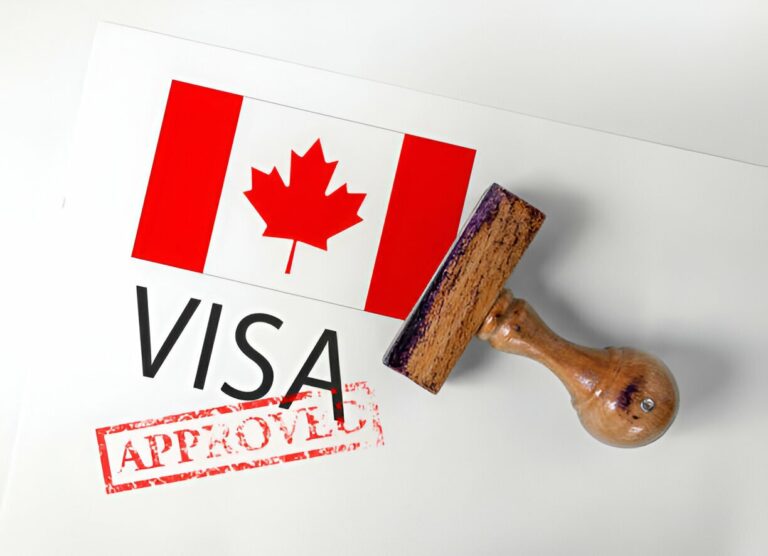A Guide to Travel Insurance
Travel insurance is one of the most crucial factors to consider while planning a vacation. Whether you’re traveling on a short weekend getaway, a long vacation, or even a work trip, unforeseen events might occur, making travel insurance an excellent investment.
In this tutorial, we will go over everything you need to know about travel insurance, including what it covers, the many types of travel insurance, and how to select the best policy for your needs.
What is Travel Insurance?
Travel insurance is a type of coverage designed to protect travelers from unexpected events during their trips. It protects you financially from unforeseen events like trip cancellations, medical emergencies, lost baggage, flight delays, and even natural disasters.
Travel insurance can be purchased for international or domestic travel and offers peace of mind that you’re financially protected in case something goes wrong.
Why Do You Need Travel Insurance?
- Unpredictable Events: Travel plans can change due to unforeseen circumstances like illness, bad weather, or flight cancellations.
- Medical Emergencies: If you get sick or injured while traveling, you may face high medical costs, especially abroad where health care systems differ.
- Trip Cancellations or Interruptions: If you need to cancel your trip last-minute due to illness, work commitments, or family emergencies, insurance can help recover some costs.
- Lost or Delayed Baggage: Delayed or lost luggage is an inconvenience, and insurance can cover the cost of replacing essential items.
In short, travel insurance protects your investment in the trip and minimizes the financial risks of traveling.
Types of Travel Insurance
Understanding the different types of travel insurance can help you select the coverage that best suits your needs. The most common types include:
1. Trip Cancellation Insurance
Trip cancellation insurance covers the costs associated with canceling your trip due to certain unforeseen events. This includes illness, injury, natural disasters, or other covered reasons like a death in the family. This type of insurance typically reimburses non-refundable trip expenses like flights, hotel reservations, and tours.
- Key Benefits: Reimbursement for pre-paid trip costs, including travel expenses and accommodations, in the event of a trip cancellation.
- Things to Consider: The policy might have specific exclusions, such as cancellations due to pandemics or work-related issues.
2. Trip Interruption Insurance
Trip interruption insurance covers situations where your trip is cut short after it has already started. This could include events such as a family emergency, illness, or natural disaster forcing you to return home earlier than planned. It often provides compensation for unused, non-refundable expenses and any additional travel costs you incur to return home.
- Key Benefits: Reimbursement for non-refundable trip costs and additional travel expenses caused by interruptions.
- Things to Consider: Coverage limits and exclusions may vary depending on the policy and the reason for the trip interruption.
3. Medical Emergency Insurance
Medical emergency insurance is designed to cover medical expenses if you get injured or sick during your trip. This is especially important when traveling abroad, where health care costs can be high and your domestic health insurance might not provide coverage.
- Key Benefits: Coverage for hospital visits, doctor fees, and medical evacuations, which can be very costly in some countries.
- Things to Consider: Always read the fine print to ensure the policy covers your specific destination and any pre-existing conditions.
4. Evacuation Insurance
Evacuation insurance, also known as medical evacuation insurance, covers the costs of getting you to a medical facility in the event of an emergency. It can also cover the cost of emergency evacuations if you’re caught in a natural disaster, political unrest, or other dangerous situations.
- Key Benefits: Emergency transportation to a medical facility or to your home country in case of severe illness or injury.
- Things to Consider: Policies may have limits based on distance, region, and type of emergency.
5. Baggage Insurance
Baggage insurance covers the loss, theft, or damage of your luggage and personal items during your trip. It can also reimburse you for the cost of replacing essential items if your baggage is delayed for an extended period.
- Key Benefits: Compensation for lost, stolen, or damaged luggage and personal belongings.
- Things to Consider: Policies may have exclusions for certain items (such as electronics) or for situations like theft due to negligence.
6. Travel Delay Insurance
Travel delay insurance compensates you for expenses incurred when your flight or other transportation is delayed for a certain amount of time. This can include meals, lodging, and transportation expenses during the delay.
- Key Benefits: Coverage for lodging, meals, and travel expenses due to delays caused by weather, strikes, or technical problems.
- Things to Consider: Coverage is usually only applicable after a specified delay (e.g., 6 hours or more).
7. Accidental Death and Dismemberment (AD&D) Insurance
AD&D insurance provides coverage in the unfortunate event of your death or serious injury (e.g., loss of a limb) during your trip. The benefits paid out typically go to your family or designated beneficiaries.
- Key Benefits: Compensation for accidental death or serious injury during your trip.
- Things to Consider: This is typically a supplemental policy rather than comprehensive coverage.
What Does Travel Insurance Cover?
Travel insurance coverage can vary significantly between providers and policies. Below are some of the most common situations covered by travel insurance:
- Trip cancellations or interruptions: Covers non-refundable costs if you must cancel or cut short your trip due to a covered reason.
- Medical emergencies: Covers doctor’s visits, hospital stays, surgeries, and sometimes evacuation costs.
- Lost or stolen baggage: Provides compensation for lost or damaged luggage and personal items.
- Trip delays: Reimbursement for meals, accommodations, and transportation expenses during delays.
- Emergency evacuation: Covers the costs of transportation to the nearest medical facility or back to your home country.
- Travel assistance services: Offers 24/7 access to a support team to help with booking medical care, arranging evacuations, or providing travel assistance in an emergency.
How to Choose the Right Travel Insurance
When choosing travel insurance, consider the following factors to ensure the policy meets your needs:
1. Trip Type and Duration
Short trips might not require the same level of coverage as longer, more complex journeys. For a weekend getaway, basic coverage may suffice, but for longer international trips, comprehensive coverage is often better.
2. Destination
The cost and type of travel insurance may vary based on where you’re going. Some destinations have higher medical costs (e.g., the U.S.) or higher risks (e.g., regions prone to hurricanes). Ensure your insurance covers the specific risks associated with your destination.
3. Pre-existing Conditions
If you have any pre-existing medical conditions, make sure the insurance policy provides coverage for those. Many policies have exclusions for pre-existing conditions, but some offer a waiver for an additional cost.
4. Coverage Limits
Make sure you understand the coverage limits for each type of insurance. For instance, some medical insurance policies might only cover up to a certain amount (e.g., $100,000), so ensure that this amount is adequate for your destination.
5. Exclusions
Carefully read the fine print for exclusions—common exclusions include natural disasters, pandemics, and activities such as extreme sports (unless specifically covered). Make sure your policy covers the situations you’re most likely to encounter.
6. Customer Reviews and Reputation
Look for reputable insurance companies with positive customer reviews. Read about the company’s claims process to understand how easy it is to file a claim and get reimbursed.
Travel insurance is a crucial safety net that helps protect you from financial loss during your trip. It provides peace of mind by covering various risks such as trip cancellations, medical emergencies, lost luggage, and more. When selecting the right policy, assess the nature of your trip, your destination, and your personal health needs. Always read the fine print, understand what’s covered, and ensure you’re getting the best value for your coverage.
What does travel insurance cover?
Travel insurance can cover a wide range of situations and expenses that may arise before or during your trip. The specific coverage can vary depending on the policy you choose, but here are the most common things that travel insurance generally covers:
1. Trip Cancellation
Trip cancellation insurance reimburses you for non-refundable trip expenses (like flights, hotels, and tours) if you need to cancel your trip due to certain unforeseen events. These events could include illness, injury, death in the family, natural disasters, or other covered circumstances.
- Covered Events: Illness, injury, family emergency, or unexpected work commitments that require you to cancel the trip.
2. Trip Interruption
Trip interruption insurance provides reimbursement for costs if your trip is cut short due to unexpected events. If you need to return home early due to an emergency or other covered reasons, this coverage can compensate you for unused, non-refundable trip expenses and additional travel costs incurred to get back home.
- Covered Events: Medical emergencies, family emergencies, or unexpected situations that force you to end your trip early.
3. Medical Emergencies
Medical emergency coverage is one of the most important aspects of travel insurance, especially if you’re traveling abroad. It covers expenses like doctor’s visits, hospital stays, surgeries, and sometimes medications if you get sick or injured while traveling.
- Covered Events: Injury, illness, or medical emergencies that occur while traveling.
4. Emergency Medical Evacuation
This coverage helps pay for transportation to the nearest medical facility or even back home if you need specialized treatment due to illness or injury. Emergency evacuations can be expensive, especially if you’re in a remote location.
- Covered Events: Severe illness, injury, or situations requiring evacuation to a medical facility.
5. Baggage Loss, Theft, or Damage
Baggage insurance compensates you for lost, stolen, or damaged baggage and personal items during your trip. It can also reimburse you for the cost of replacing essential items if your luggage is delayed for an extended period.
- Covered Events: Lost, stolen, or damaged luggage and personal belongings, or delayed baggage.
6. Travel Delays
Travel delay insurance reimburses you for additional expenses incurred when your travel plans are delayed. This can include meals, lodging, and transportation during the delay.
- Covered Events: Flight delays, weather-related delays, or strikes that affect your travel schedule.
7. Flight Accident or Accidental Death and Dismemberment (AD&D)
This type of insurance provides compensation in the event of an accident that causes death or serious injury (e.g., loss of a limb) during your trip, especially while traveling by air. The payout typically goes to your family or beneficiaries.
- Covered Events: Accidents leading to death, dismemberment, or serious injury during your trip.
8. Travel Assistance Services
Many travel insurance policies offer 24/7 travel assistance, which can help you in emergencies. These services may include assistance with lost passports, booking emergency medical services, finding new accommodations, and arranging transportation in case of an emergency.
- Covered Services: Emergency medical assistance, trip rerouting, lost baggage assistance, and more.
9. Trip Delay or Missed Connection
If you miss your connecting flight or your travel plans are delayed for an extended period, travel insurance can cover additional costs like lodging, meals, and transportation needed to get back on track.
- Covered Events: Missed connections due to delays and the resulting additional travel expenses.
10. Car Rental Damage or Theft
Some travel insurance policies also cover damages or theft to a rental car, including liability protection in case of accidents while driving.
- Covered Events: Damage or theft of a rental car, or accidents during the rental period.
11. Accidental Death or Injury
Accidental death and dismemberment (AD&D) coverage can provide compensation in case of serious injury or death due to an accident during your trip. This might apply in scenarios like accidents while traveling, including car crashes or accidents at your destination.
- Covered Events: Death, dismemberment, or serious injury resulting from an accident during the trip.
Common Exclusions in Travel Insurance
While travel insurance covers many unexpected events, it often comes with exclusions. Some of the common exclusions are:
- Pre-existing Medical Conditions: Most travel insurance policies do not cover illnesses or injuries related to pre-existing medical conditions unless specified in the policy.
- Natural Disasters or Terrorism: Depending on the policy, natural disasters like hurricanes or terrorism-related events may not be covered unless you have specific add-ons.
- Alcohol or Drug-related Incidents: Injuries or accidents caused by intoxication are often not covered.
- Non-covered Activities: Some policies exclude coverage for extreme activities like skydiving, bungee jumping, or other high-risk sports unless specifically included.
Travel insurance provides vital protection against a variety of potential issues that can arise while traveling, from medical emergencies to trip cancellations, and loss of luggage to travel delays. Understanding the different types of coverage available and carefully reviewing the exclusions in your policy will help you choose the best insurance plan for your needs. Whether you’re traveling for leisure or business, travel insurance can give you peace of mind and protect you from the unexpected.
Frequently Asked Questions (FAQ) About Travel Insurance
Here are some common questions people have when considering or purchasing travel insurance:
1. What is Travel Insurance?
Travel insurance is a type of insurance designed to protect you from financial loss in case something goes wrong during your trip. It typically covers medical emergencies, trip cancellations, lost baggage, travel delays, and more.
2. Do I really need Travel Insurance?
While it’s not mandatory, travel insurance is highly recommended. It can protect you from unforeseen circumstances, such as illness, trip cancellations, or emergencies while abroad. Without insurance, you may end up paying out-of-pocket for unexpected events, which could be costly.
3. What does Travel Insurance cover?
Travel insurance typically covers:
- Trip cancellation or interruption due to covered events.
- Medical emergencies and medical evacuation.
- Lost, stolen, or damaged baggage.
- Trip delays and missed connections.
- Accidental death or dismemberment while traveling.
- Emergency travel assistance services.
Coverage can vary depending on the policy and provider.
4. What is the difference between Trip Cancellation and Trip Interruption insurance?
- Trip Cancellation: Reimburses you if you need to cancel your trip before it starts due to covered reasons (illness, family emergency, etc.).
- Trip Interruption: Covers you if your trip is cut short after it has already started due to a covered event. It helps reimburse the cost of unused portions of your trip and additional travel costs to return home.
5. Can I buy Travel Insurance for an existing trip?
Travel insurance should be purchased before or shortly after booking your trip. Many policies do not cover events that occur before the insurance is purchased. However, some providers offer “late purchase” options if you’ve already booked your travel.
6. Does Travel Insurance cover pre-existing medical conditions?
Most standard travel insurance policies do not cover pre-existing medical conditions unless specifically stated. However, some providers offer waivers or add-ons for pre-existing conditions, but you must typically buy insurance within a certain period after making your initial trip deposit.
7. How much does Travel Insurance cost?
The cost of travel insurance depends on various factors, including:
- Trip cost: The more expensive your trip, the more you’ll pay for coverage.
- Trip length: Longer trips generally cost more to insure.
- Destination: Some locations, especially those with high medical costs or risks, may lead to higher premiums.
- Coverage level: More extensive coverage options will result in higher premiums.
On average, travel insurance can cost between 4% and 10% of the total cost of your trip.
8. What are the exclusions in Travel Insurance?
Common exclusions in travel insurance policies include:
- Pre-existing medical conditions (unless covered by a waiver).
- Acts of war or terrorism (unless specifically included in the policy).
- Participation in high-risk activities or extreme sports (e.g., skydiving, bungee jumping).
- Loss of property due to negligence (e.g., leaving luggage unattended).
- Non-covered reasons for trip cancellation, such as personal preference or business-related issues.
Always read the fine print to understand what is excluded from your policy.
9. Can I cancel my Travel Insurance policy and get a refund?
Cancellation and refund policies vary by provider. Some insurers offer a free look period (usually 10–14 days), where you can cancel for a full refund, provided you haven’t already left for your trip. After the free look period, refunds may only apply in certain situations, like if your trip is canceled before it starts.
10. How do I file a claim with my Travel Insurance?
To file a claim, you’ll typically need to:
- Notify the insurance provider of the incident (e.g., medical emergency, trip interruption) as soon as possible.
- Submit necessary documentation, such as medical bills, flight cancellation records, police reports (if applicable), and receipts for lost or damaged baggage.
- Follow the insurer’s instructions and file the claim within the specified time frame (usually within 30–60 days of the event).
11. Will Travel Insurance cover me if I’m traveling during a pandemic?
Many standard travel insurance policies exclude coverage for pandemics or outbreaks. However, some insurance providers offer cancel for any reason (CFAR) coverage, which allows more flexibility in case you decide not to travel due to concerns about health or safety. Check your policy for specific details regarding pandemic-related coverage.
12. Can I get coverage for adventure sports or high-risk activities?
Most travel insurance policies do not cover extreme or high-risk sports (such as skydiving, scuba diving, or skiing) unless you purchase specialized coverage or an add-on. If you plan to engage in these activities, make sure your policy covers them or choose an insurer that offers this protection.
13. What should I do if I have a medical emergency while traveling?
If you have a medical emergency while traveling, contact your travel insurance provider immediately. Many insurers offer 24/7 emergency assistance hotlines to help you find a medical facility, arrange transportation, or coordinate treatment. Be sure to keep your policy details on hand when contacting them.
14. Is Travel Insurance available for domestic travel?
Yes! Travel insurance is not just for international trips; you can also get coverage for domestic travel. This may include coverage for trip cancellation, medical emergencies, delays, or baggage loss within the United States.
15. How do I choose the best Travel Insurance policy for me?
To choose the right travel insurance policy:
- Assess the value of your trip and the risks involved.
- Consider whether you need coverage for medical emergencies or cancellations.
- Check if your current health insurance or credit card offers any travel protections.
- Compare different policies based on coverage, exclusions, cost, and customer reviews.
Always read the policy details carefully and choose the one that offers the most comprehensive coverage for your needs.
Travel insurance is an essential part of preparing for any trip. By understanding what it covers, its exclusions, and how to choose the right policy, you can ensure a safe and worry-free journey. Always do your research and select a policy that fits your trip type, destination, and personal needs.
What are the ways to to get travel insurance?
There are several ways to get travel insurance, depending on what you’re looking for in terms of coverage and convenience. Here are a few options:
- Through Travel Insurance Providers:
- You can purchase travel insurance directly from companies that specialize in it. Some well-known providers include Allianz, Travel Guard, and World Nomads.
- These companies usually offer various plans with options for trip cancellation, medical emergencies, lost baggage, etc.
- Through Airlines or Travel Agencies:
- Many airlines, hotels, or travel agencies offer travel insurance as an add-on when you book your flights or accommodations.
- This can be convenient if you’re booking everything through a single provider, but it’s important to read the details and compare to see if it’s the best coverage for you.
- Credit Card Benefits:
- Some credit cards, especially premium ones, offer built-in travel insurance as a perk when you use the card to purchase your trip.
- Coverage typically includes trip cancellation, lost luggage, and travel accidents. Check with your credit card issuer for specific details.
- Online Comparison Websites:
- Websites like InsureMyTrip, Squaremouth, or TravelInsurance.com allow you to compare different travel insurance policies from multiple providers in one place.
- This can help you find the right balance of coverage and price for your needs.
- Through Travel Booking Websites:
- Popular travel booking sites like Expedia, Booking.com, or Kayak often offer travel insurance as an option when you book your flight, hotel, or rental car.
- Similar to airlines, it can be convenient but always make sure to verify the coverage details before purchasing.
- Specialized Travel Insurance for Specific Activities:
- If you’re planning activities like hiking, skiing, or scuba diving, some companies offer specialized coverage for adventure travel.
- Make sure your insurance covers any specific activities you plan on doing during your trip.




